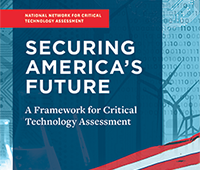Georgia Institute of Technology (Georgia Tech) researchers have developed a computational model that can predict video game players’ in-game performance and provide a corresponding challenge they can beat, leading to quicker mastery of new skills. The advance not only could help improve user experiences with video games but also applications beyond the gaming world.
Digital gaming has surged in recent years and is being adopted almost as fast as the mobile devices that are enabling its growth. The Georgia Tech researchers developed a simple turn-based game, then used participant scores to apply algorithms that predict how others with similar skill sets would perform and adjust the difficulty accordingly.
“People come in playing video games with different skills, abilities, interests, and even desires, which is very contrary to the way video games are built now with a ‘one-size-fits-many approach,’” says Mark Riedl, co-creator of the model and assistant professor in the School of Interactive Computing.
The researchers used a method called collaborative filtering, a popular technique employed by Netflix and Amazon in product ratings and recommendations. While Netflix recommends movies, the gaming model recommends the next challenge for players, adjusting game difficulty by computationally forecasting in-game performance. Riedl says the approach can scale to tens of thousands of users.
The data-driven gaming model outperforms other current techniques specifically because it models player improvement over time, says Riedl. It uses an off-the-shelf algorithm, called tensor factorization, for the first time in gaming research to tailor challenges to individual players.
The gaming model also includes a performance arc with which an algorithm selects in-game events for gamers that brings the predicted player performance in line with the developer’s specifications for target performance (for example, completing the game). Current games use player progress to make small adjustments to what’s going on in the game, sometimes called “rubberbanding.” The classic example: fall behind in a racing game and the other cars slow down; blow away the field with a large lead and the cars speed up.
“This is very reactionary,” says Riedl, who directs the Georgia Tech Entertainment Intelligence Lab. “You have to wait for things to fall apart, and then the game tries to correct it in this ad-hoc way.”
Riedl says that the new gaming model, which grows alongside the learner, has significant potential for educational and training applications as well. Students struggling with math concepts, for example, could use the model to master arithmetic and mitigate the chances of falling behind in a course, says Riedl.
“We’ve also done some work with the U.S. Army,” he says, “to generate virtual missions where we choose and tailor the types of things that have to happen in the mission so that we don’t overwhelm the novices or that we can really challenge the experts.”
“Our approach could allow novices to progress slowly and prevent them from abandoning a challenge right away,” says Riedl. “For those good at certain skills, the game can be tuned to their particular talents to provide the right challenge at the right time.”
Alex Zook, a graduate candidate in human-centered computing, says that they were able to predict, with up to 93% accuracy, how players would perform in-game by modeling the changes in a player’s skills and applying the recommendation algorithm.
Source: Georgia Institute of Technology




